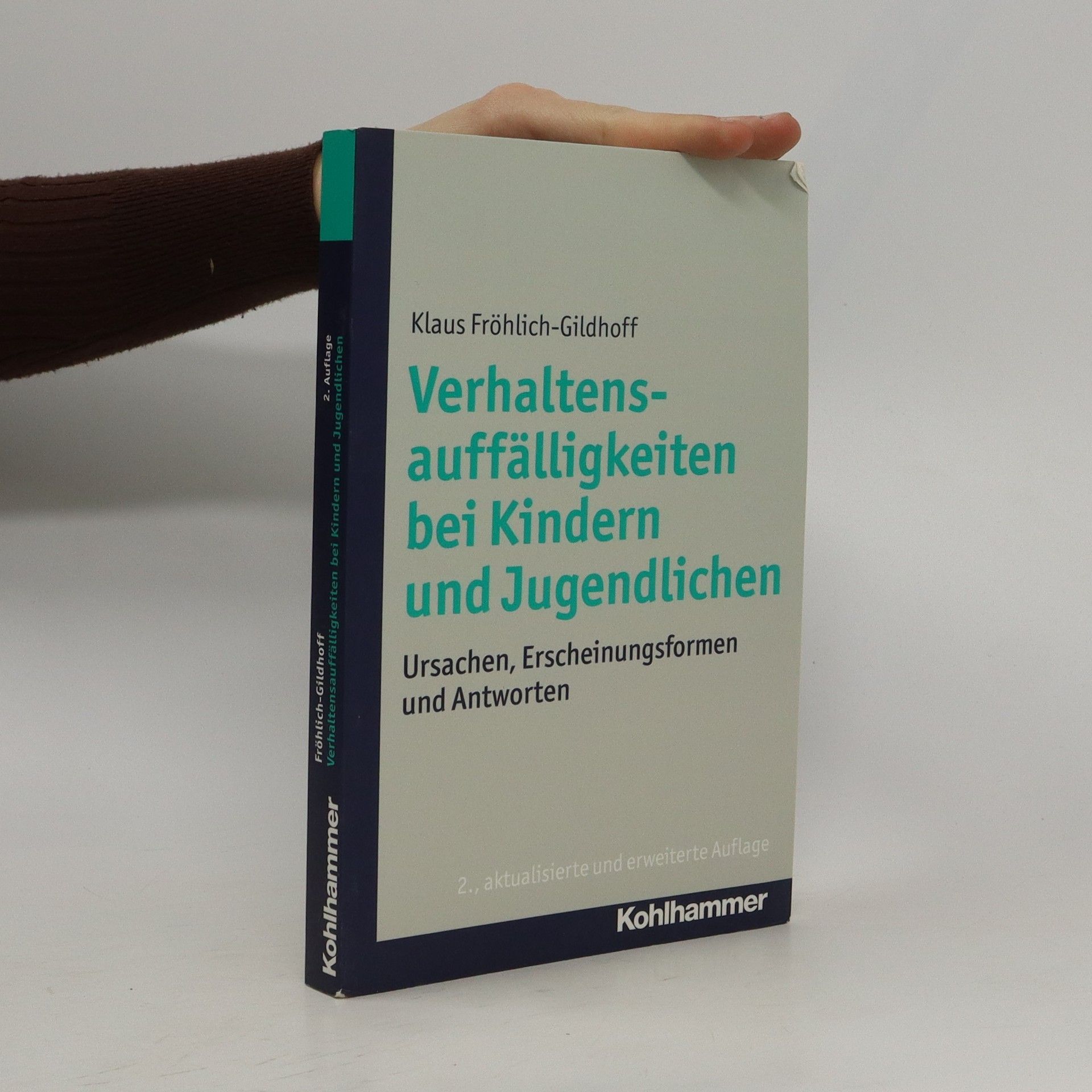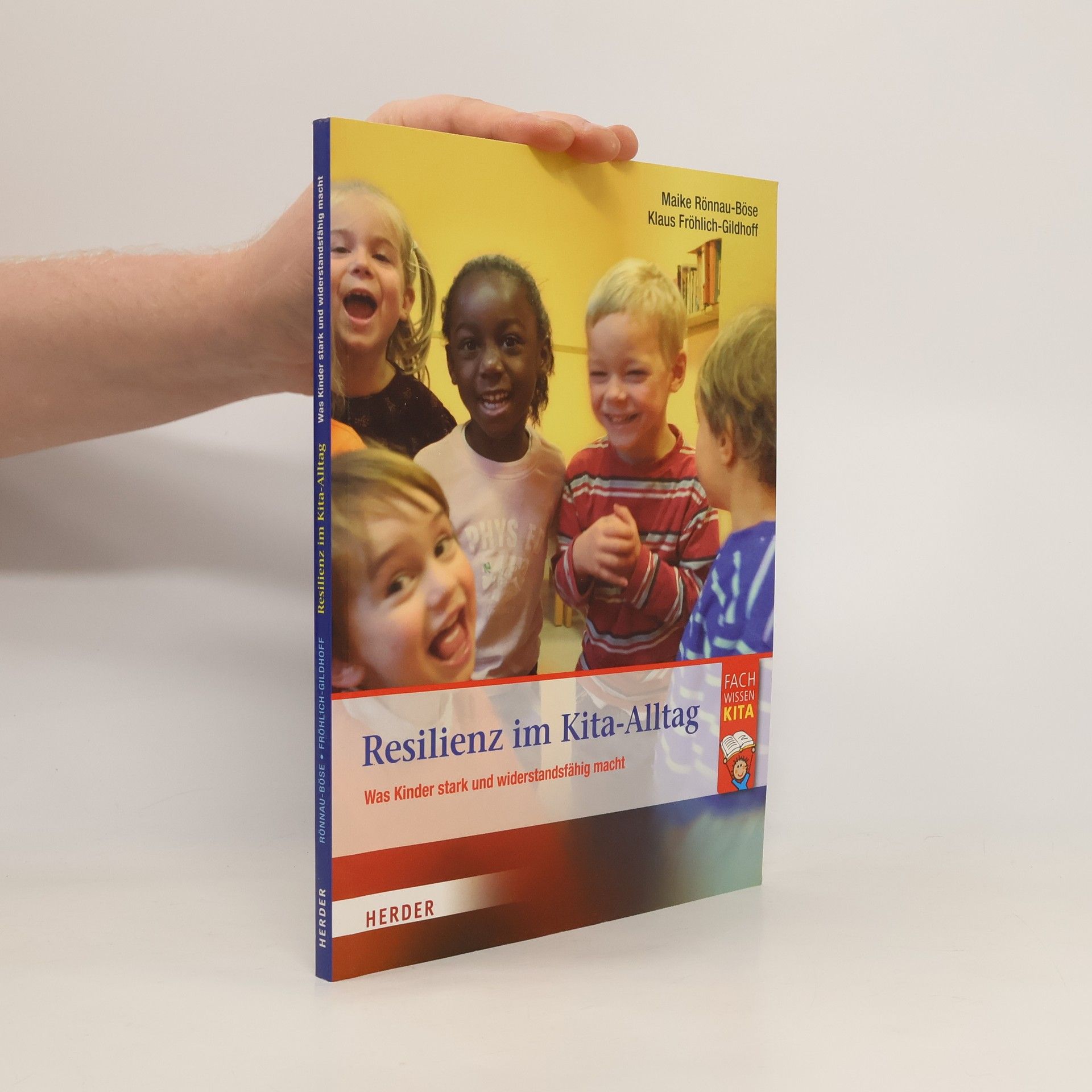Veränderte Familienstrukturen, aber auch Armut, Arbeitslosigkeit oder Migrationshintergrund der Eltern führen dazu, dass Kinder oft schon früh besonderen Herausforderungen begegnen. Daher ist es wichtig, dass kindliche Widerstandsfähigkeit in Kitas gefördert wird. Aber was sind nachgewiesenen Schutzfaktoren? Auf der Grundlage ihres erforschten Trainingsprogramms zeigen die Autoren praxisnah, wie Resilienz bei Kindern optimal gestärkt wird.
Klaus Fröhlich-Gildhoff Book order (chronological)






Das Konzept der Resilienz hat in der Psychologie und Pädagogik, aber auch im öffentlichen Diskurs eine erstaunliche Karriere gemacht. Die einen verknüpfen damit hohe Erwartungen an eine Verbesserung der seelischen Gesundheit durch die systematische Förderung der psychischen Abwehrkräfte. Von anderen wird es als individualisierendes Konzept heftig kritisiert, das die Verwundbarkeit von Kindern übersieht und von der Verbesserung belastender Lebensverhältnisse eher ablenkt. Das Buch prägt der Anspruch, sowohl die Fortschritte und Chancen der Resilienzforschung und -förderung angesichts aktueller Krisen und Transformationsprozesse in unseren Gesellschaften konstruktiv zu erörtern als auch die Risiken und Grenzen des Ansatzes kritisch zu reflektieren. Jetzt reinlesen: Inhaltsverzeichnis(pdf)
Verhaltensauffälligkeiten bei Kindern und Jugendlichen
Ursachen, Erscheinungsformen und Antworten
- 350 pages
- 13 hours of reading
In diesem Lehrbuch werden Symptomatik, Epidemiologie und Ursachen der wichtigsten Verhaltensauffälligkeiten bei Kindern und Jugendlichen dargestellt, u. a. Depressionen, Essstörungen, ADHS, Störungen der Persönlichkeitsentwicklung/Borderline, Sucht und Posttraumatische Belastungsstörungen. Zudem gibt das Buch einen Überblick über Diagnostik und Indikationsstellung und stellt diverse Unterstützungs- und Hilfesysteme vor. Die Darstellung wichtiger Präventionsprogramme und der Arbeit mit Bezugspersonen rundet das Werk ab. Für die 4. Auflage sind v. a. die neu bearbeiteten Diagnosesysteme DSM-5 und ICD-11 ebenso wie aktuelle epidemiologische Daten berücksichtigt worden.
SCHROTT
Kommisar Peter Kluthe ermittelt
Kriminalkommissar Peter Kluthe freut sich auf sein freies Wochenende und sinniert auf der Freitags-Besprechung der Mordkommission, wie er die Bodenplatte für seinen Gartengrill gießen kann. Ein Anruf aus dem Kasseler Klinikum macht seine Pläne zunichte: Ein Schrotthändler aus dem Landkreis ist mit einem länglichen Gegenstand im Kopf eingeliefert worden. Wegen Personalmangels muss Kluthe den Fall übernehmen. Der Schrotthändler stirbt am nächsten Tag. Kluthe und sein Team verfolgen zunächst verschiedene Spuren – vom Unfall, Suizid, bis zur Tötung aus Eifersucht. Doch dann nimmt der Fall eine überraschende Wendung. Eine Romanze mit einer attraktiven Frau aus dem Umfeld lenkt Kluthe von den Spuren ab. In dem Kriminalroman wird aus der Perspektive eines Kriminalkommissars die Polizeiarbeit realistisch und spannend dargestellt.
Menschen stärken
Resilienzförderung in verschiedenen Lebensbereichen
Mit diesem Buch werden Möglichkeiten der Resilienzförderung, allgemeiner: der Förderung der seelischen Gesundheit, in verschiedenen Lebensbereichen beschrieben. Neben konkreten Erfahrungen in Fördermaßnahmen stehen wissenschaftliche Grundlagen im Vordergrund, um systematisch eine ganzheitliche Perspektive zur Resilienzförderung in verschiedenen Lebenssituationen und -abschnitten zu entwickeln. Die Autor*Innen schöpfen dabei insbesondere aus Erfahrungen in Projekten am Zentrum für Kinder- und Jugendforschung der Evangelischen Hochschule in Freiburg.
Prävention und Resilienzförderung in der Sekundarstufe I - PRiS
Ein Förderprogramm
Die seelische Gesundheit ist störanfällig und muss gefördert werden, auch in der Schule. Dieses Buch stellt ein praxisbezogenes, evaluiertes Konzept zur Stärkung der psychischen Widerstandskraft (Resilienz) von SchülerInnen vor. Für die Klassenstufen 5 bis 10 werden gezielte Spiele und Übungen präsentiert, die direkt im Unterricht angewendet werden können. Dabei werden z. B. die Selbstwahrnehmung, soziale Kompetenzen oder Problemlösestrategien gefördert. Hintergrundinfos zum Resilienzbegriff sowie methodisch-didaktische Tipps erleichtern die Umsetzung
Kinder mit herausforderndem Verhalten in der KiTa
Eine Handreichung für ressourcenorientiertes Handeln
- 100 pages
- 4 hours of reading
Das Verhalten von Kindern wird von pädagogischen Fachkräften in Kindertageseinrichtungen oftmals als Herausforderung, teilweise auch als Überforderung erlebt. Diese Handreichung stellt Fachkräften praxiserprobte Materialien für die Einführung einer systematischen, ressourcenorientierten Vorgehensweise zur Begegnung mit als herausfordernd erlebtem Verhalten zur Verfügung. Die Materialien unterstützen Fachkräfteteams, gezielter zu beobachten, das Verhalten von Kindern besser zu verstehen und passgenaue Handlungsstrategien zu entwickeln.
